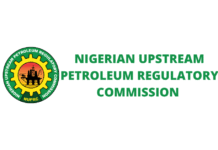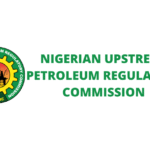The Group Managing Director of the Nigerian National Petroleum Corporation, Mele Kyari has said that the group is rehabilitating its three refineries, developing 200,000bpd condensate refineries as well as supporting private sector establishment of refineries to promote a stronger oil sector in Nigeria.
Kyari, said this at the Virtual African Refiners Association Week 2020 Conference.
He said that the rehabilitation exercise involves working with globally reputable engineering procurement and construction companies to revamp the existing refineries to operate at world-class capacity utilization levels.
“NNPC group is rehabilitating its three refineries, developing 200,000bpd condensate refineries and supporting private sector establishment of refineries,” he added.
The GMD said that the group is using the Build Operate and Transfer strategy to restore these facilities using private sector financing.
He said, “Considering that revamp of petroleum products storage depots and associated pipelines is key to optimal operations of the refineries, NNPC group is using the Build Operate & Transfer strategy to restore these facilities using private sector financing.
“Nigeria is intensifying the use of Natural Gas to ensure lower emissions. Natural Gas has been identified as the fuel of choice for the future as it has the full credentials to support the achievement Sustainable Devt Goals .”
The GMD had earlier announced plans are ongoing to implement an operating model which allows the government-owned NNPC to be a minority shareholder in the refineries.
“Government does not have the resources to fund 100 per cent of the refineries. We are resorting to private capital, this will free NNPC from direct responsibility of running the refineries, support the processes and we will have a more efficient way of running it,” he added.
He said that there is an ongoing conversation on installing the NLNG model for the refineries, which makes government the minority shareholder in the asset.
According to him, the refineries have only worked sporadically for years due to activities of vandalisers.
“Every refinery is expected to operate at at least 90 percent of installed capacity but it was impossible to run any of these refineries before the short down at that level.
“We tried running at 60 per cent of the installed capacity but it led to value destruction, where you take $100 crude to the refinery and bring out only $70.
“We are ensuring we deliver on the rehabilitation so that when they are back to being used, they can deliver beyond the 90 percent installed capacity.
“We encouraging private firms to establish refineries, and support major partners.
“This plan is expected to place Nigeria as one of the world’s biggest exporter of petroleum products within the next three years.’










